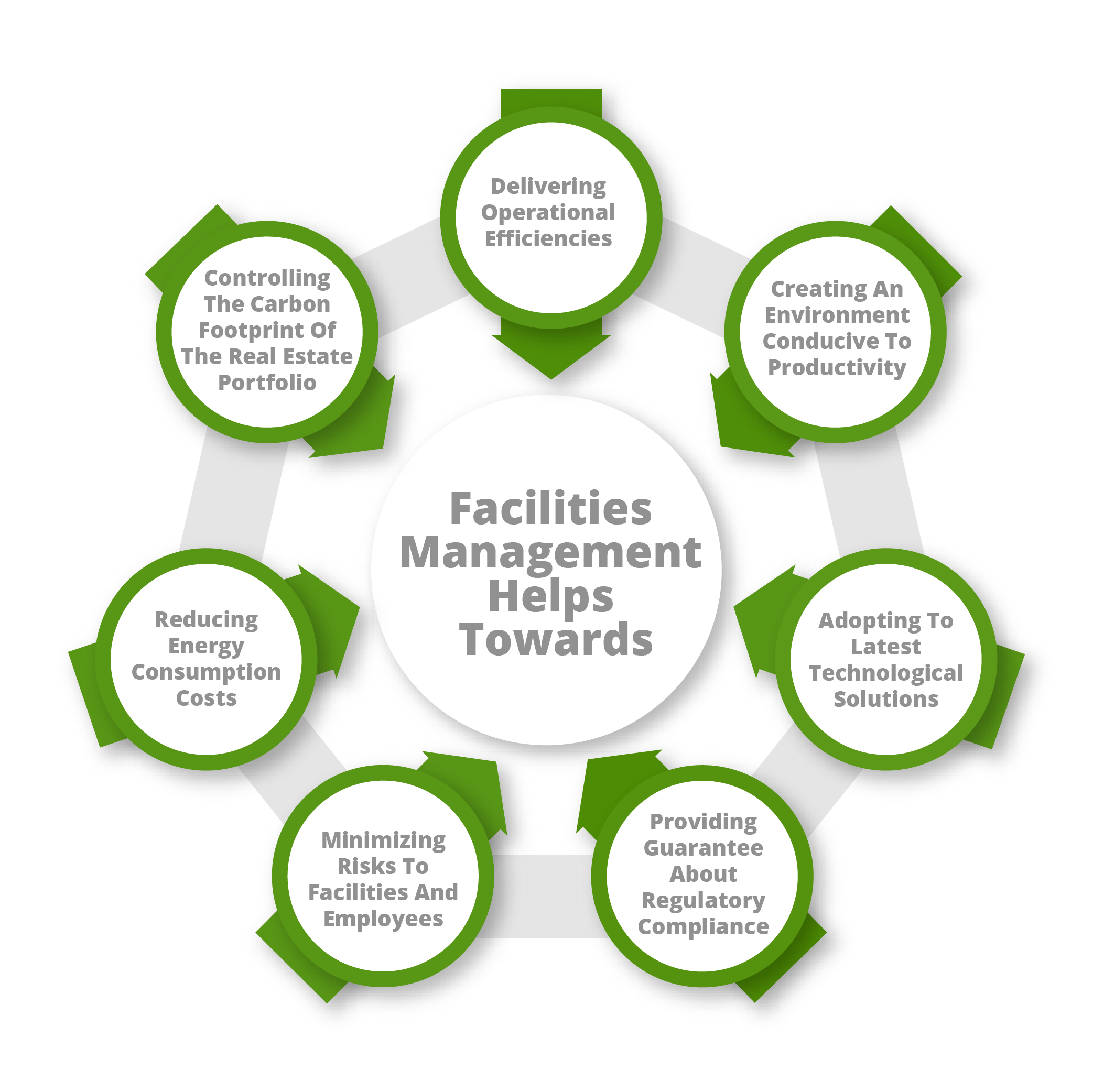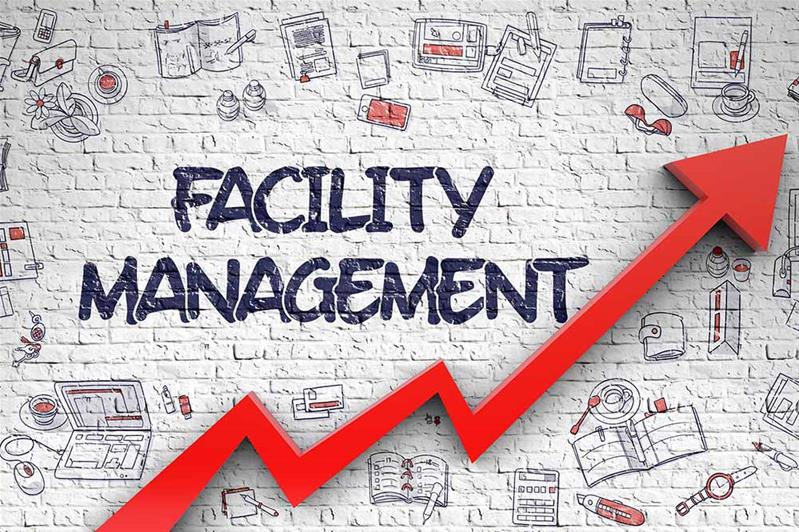The Role of Total Facility Management in Ensuring Workplace Safety and Compliance
The Role of Total Facility Management in Ensuring Workplace Safety and Compliance
Blog Article
Why Total Facility Management Is Necessary for Company Success
Total Facility Management (TFM) functions as a foundation for business success by integrating diverse functional elements such as maintenance, area usage, and safety and security procedures. This integration not just enhances performance however additionally lines up facility management with overarching business goals. As organizations navigate an affordable landscape, comprehending the complex benefits of TFM can be crucial in driving expense performance and improving staff member productivity. The implications of embracing TFM expand much beyond instant functional gains, raising vital inquiries about its long-lasting influence on business resilience and competitiveness. What exists under this important framework?
Understanding Total Facility Management
Total Facility Management (TFM) incorporates a comprehensive approach to managing an organization's buildings and associated services to guarantee optimal functionality, safety, and efficiency. TFM integrates various disciplines, including upkeep, procedures, room management, and security procedures, to produce a cohesive framework that sustains a company's core purposes.
At its core, TFM intends to improve the processes involved in facility management, minimizing redundancies and improving service distribution. This strategy includes the sychronisation of activities connected to home management, such as fixings, cleansing, and energy management, to cultivate an efficient atmosphere for workers and stakeholders alike. TFM additionally highlights the significance of implementing ideal methods and innovative modern technologies to enhance service top quality and decrease functional expenses.
By aligning facility management activities with organizational objectives, TFM enhances general efficiency while ensuring compliance with wellness, safety, and environmental guidelines. Hence, TFM serves not only as a logistical feature yet also as a calculated property, contributing to an organization's long-lasting sustainability and development.
Trick Benefits of TFM
Leveraging an extensive technique, companies that implement Total Facility Management (TFM) unlock a myriad of benefits that contribute to general organization success. Among the primary advantages of TFM is the enhancement of operational effectiveness. By combining facility solutions under a unified management framework, companies can simplify procedures, reduce redundancies, and improve communication across departments.
Furthermore, TFM promotes a positive maintenance strategy, which decreases downtime and extends the lifespan of facilitiess and equipment (Total Facility Management). This positive strategy not only improves productivity however also cultivates a more secure working atmosphere, inevitably bring about greater staff member contentment and retention rates
In addition, TFM assists in much better resource allocation by offering insights right into facility efficiency metrics. Organizations can determine areas for enhancement, enabling them to make enlightened decisions that straighten with their tactical objectives.
TFM and Cost Effectiveness
Attaining cost efficiency is a fundamental goal for organizations, and Total Facility Management (TFM) plays a critical duty in this venture - Total Facility Management. By incorporating different facility solutions under a solitary management framework, TFM makes it possible for organizations to streamline procedures and decrease redundancies. This all natural method results in significant price savings, as it removes the requirement for multiple suppliers and simplifies purchase processes
Moreover, TFM cultivates proactive upkeep techniques, which decrease the danger of costly repair services and downtime. By prioritizing safety nets, companies can prolong the life-span of their possessions and lower unforeseen expenses. Additionally, TFM integrates energy management techniques, which can dramatically cut utility prices through effective resource application.
The centralization of data and analytics within TFM enables companies to make informed monetary choices. By identifying patterns and locations for improvement, TFM allows customized strategies that even more boost cost management. The scalability of TFM services makes sure that as companies expand, their facility management practices remain effective and lined up with economic objectives.
Enhancing Staff Member Productivity
A well-managed facility can considerably improve worker performance by developing a helpful workplace. Effective Total Facility Management (TFM) makes certain that all facets of the workplace-- from lighting and temperature to cleanliness and safety-- are optimized. When employees operate in a room that is well-maintained and comfy, they are most likely to concentrate on their tasks, causing greater result and work complete satisfaction.
Moreover, TFM can more enhance collaboration through the strategic style of communal locations, urging synergy and development. By investing in the best resources and innovation, organizations can promote smooth interaction and improve workflows, further boosting performance. Routine upkeep and timely reactions to facility problems stop interruptions that might otherwise hinder efficiency.
In addition, a risk-free and healthy workplace, sustained by TFM methods, reduces absence and promotes health, directly associating with boosted productivity degrees. Eventually, focusing on facility management is an investment not just in physical possessions but likewise in the workforce itself. By promoting an environment that sustains employee requirements and preferences, services can cultivate a much more involved and effective labor force, driving overall success and affordable advantage.

Future Trends in TFM
Embracing technological developments is readied to improve the landscape of Total Facility Management (TFM) in the coming years. As the need for performance and sustainability rises, TFM will increasingly adopt smart building innovations, integrating Web of Things (IoT) gadgets to keep an eye on and take care of facility site procedures in real-time. This change will certainly allow positive upkeep, substantially minimizing functional expenses and improving service delivery.

Sustainability stays a vital emphasis, with TFM experts anticipated to prioritize green practices. This consists of utilizing renewable resource sources and enhancing waste management systems to decrease the carbon impact of facilitiess.
Remote management capacities will likewise be broadened, permitting facility supervisors to oversee operations from practically anywhere. This adaptability will certainly come to be vital as organizations adapt to hybrid work designs. his explanation In recap, the future of TFM is positioned for makeover via technology, sustainability, and enhanced operational techniques, making sure businesses remain competitive in a progressing landscape.
Conclusion
By incorporating different functional features, TFM enhances performance and lines up facility management with organizational purposes. As services increasingly take on ingenious technologies and lasting practices, the importance of TFM will certainly continue to expand, ensuring lasting operational performance and competitiveness in an advancing marketplace.

Report this page